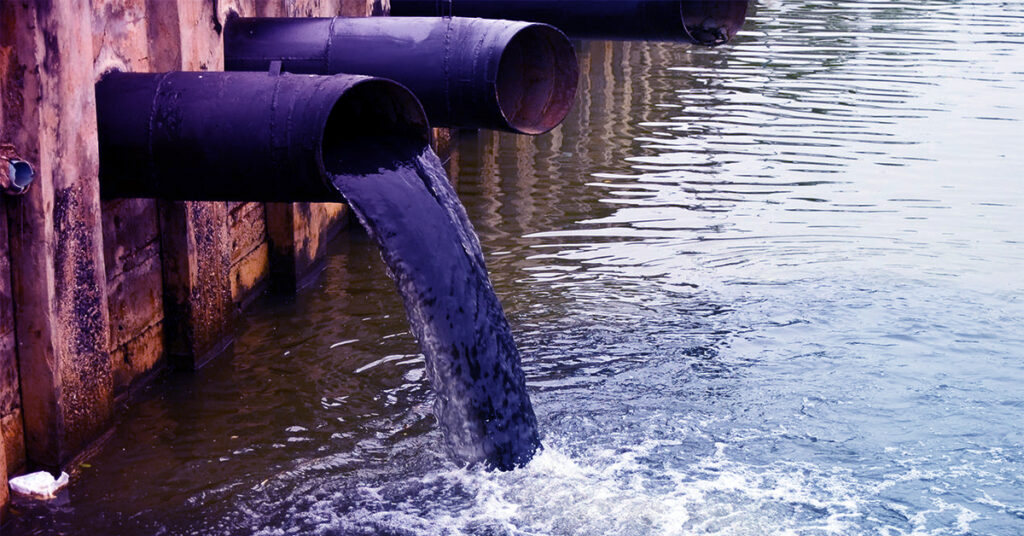The pollution of wastewater with oil is a common global problem, especially in industrial enterprises such as manufacturing, electricity generation, and shipping. Contaminated oil water may affect aquatic life and contaminate water sources. Oil-water separation is increasingly essential in these areas. Quality and design of industrial-grade oil-water separators is an effective solution to oil pollution in wastewater.
Although conventional oil-water separators have been successful, new creative ideas are needed as environmental rules get more challenging and businesses have more running demands. Improvements in separator designs, materials, and technologies present answers that raise separation efficiency and lower maintenance requirements and costs. These developments are driving for more affordable and environmentally friendly solutions by changing how sectors control oil contamination in wastewater.
Advances in Separator Design
The evolution of sophisticated materials and coatings is among the most critical developments in oil-water separation. These novel materials increase oil adhesion and more efficiently repel water, enabling industrial-grade oil-water separators to reach higher performance degrees. Previously difficult to remove, advanced polymers and hydrophobic coatings help separators collect increasingly smaller oil droplets.
Another significant development is the reconfiguration of separators. For example, multi-stage oil-water separators divide the separation process into several parts, improving the system’s general efficiency. These systems output cleaner water by gradually removing oil from water in multiple phases. Fast rotation to separate oil and water helps centrifugal separators and improves performance. For companies with high wastewater flow, these developments let companies treat more volumes of wastewater in less time, thereby optimizing their use.
Enhanced Membrane Technologies
Membrane technology is also making significant progress in oil-water separation. A typical problem with traditional membranes is fouling, in which oil accumulates on the membrane and lowers its performance. Advanced polymers and nano-coated surfaces are new membrane materials that resist fouling and preserve their separation capacity over an extended duration.
Since they call for less frequent cleaning or replacement, these developments increase the cost-effectiveness of membranes. Using these cutting-edge materials, industrial-grade oil water separators may successfully remove oil from wastewater, even in demanding conditions where traditional systems would find difficulty.
Coalescing and Flotation Systems
Although coalescing systems have been in use for some time, new developments have greatly increased their efficiency. These systems facilitate the separation of oil from water by using coalescing plates, which inspire tiny oil droplets to gather and generate bigger ones—consequently, faster and less maintenance, requiring more effective oil removal procedure results. Food processing and machine maintenance are just two sectors where modern coalescing separators find great application since they are especially efficient in handling oily effluent.
Another notable innovation in oil-water separation is flotation technologies. Air flotation devices attach to soil particles and bring them to the surface for simple cleanup using fine air bubbles introduced into the wastewater. Dissolved air flotation (DAF) systems extend this idea and increase the process’s efficiency for wastewater containing significant oil content by using pressurized air to produce even finer bubbles. Because they can manage vast amounts of oil-contaminated water, these systems are a common choice in wastewater treatment plants and petrochemical manufacturing sectors.
Integration of Smart Technologies
Including innovative technologies in industrial-grade oil water separators has transformed wastewater management in companies. Key performance indicators like system efficiency, water quality, and oil concentration may today be tracked by real-time monitoring systems. This information lets operators make quick decisions based on need, ensuring the separator functions at the best levels. By identifying possible problems, including blockages or oil overloads, smart sensors enable timely responses before issues become more serious.
Furthermore, artificial intelligence (AI) and machine learning are included in oil-water separation systems. By analyzing vast amounts of operating data, these systems forecast when maintenance is required, eliminating unplanned downtime and lowering running costs. By constantly changing settings depending on real-time data, artificial intelligence (AI) may also maximize the separator’s performance, guaranteeing that the system functions effectively under different circumstances. Large-scale businesses benefit significantly from this technology since even little improvements in efficiency can result in significant savings.
Future Trends and Research Directions
Looking ahead, scientists are investigating fresh materials and technologies meant to enhance oil-water separation even further. For instance, nanotechnology has excellent potential to create membranes that can filter even the most minor oil particles. Furthermore, self-cleaning membranes are under investigation, which would dramatically cut the demand for routine maintenance. These developments seek to provide more low-maintenance, environmentally friendly solutions to manage even the most challenging wastewater treatment situations.
Many fields still show great promise for more study. One is energy efficiency since scientists search for methods to increase separator energy efficiency without sacrificing performance. Another area of concentration is creating more environmentally friendly materials capable of substituting for conventional parts in oil-water separators. Furthermore, it is possible to incorporate renewable energy sources, such as solar or wind power, to run these systems; hence, oil-water separation proves more efficient and environmentally friendly.
Conclusion
Advances in oil-water separation have produced more ecologically friendly, reasonably priced, and efficient solutions. Materials, separator designs, membrane technologies, and intelligent systems have all helped industrial-grade oil-water separators be more dependable and efficient in cleaning oil-contaminated wastewater.
The technology utilized to satisfy environmental criteria must change as well as they do. Pushing the envelope of what oil-water separators can do and enabling businesses to comply with rules while lowering their ecological effect will depend on ongoing research and development. Using these cutting-edge technologies helps companies enhance their wastewater treatment systems, further creating a better, more sustainable future.


